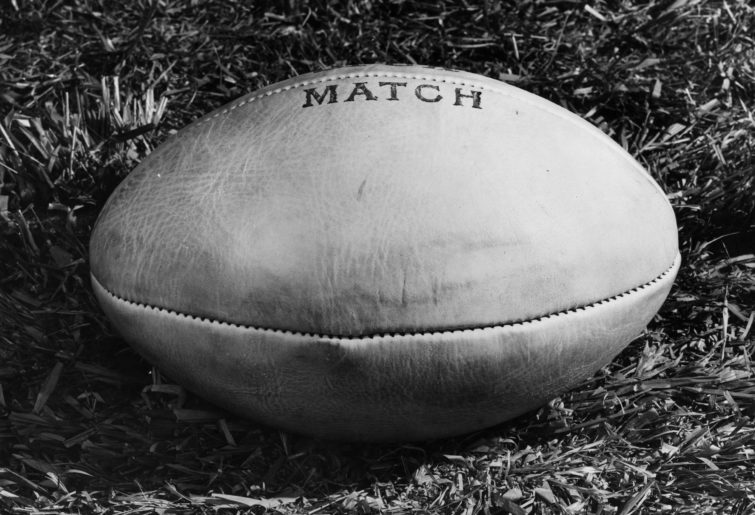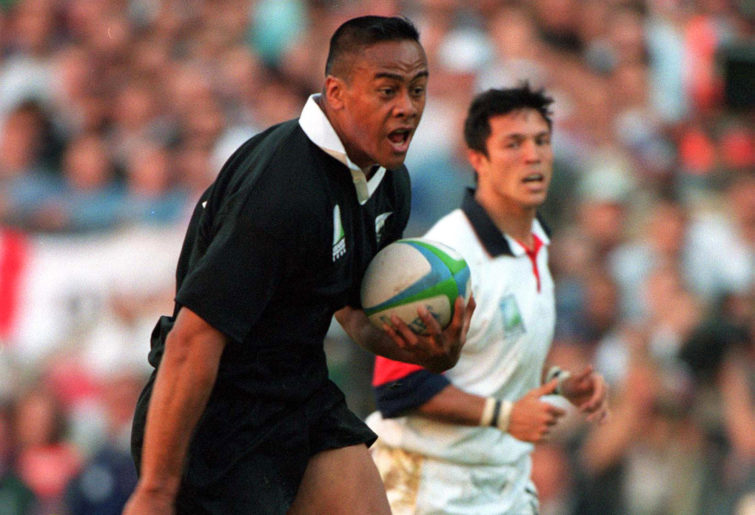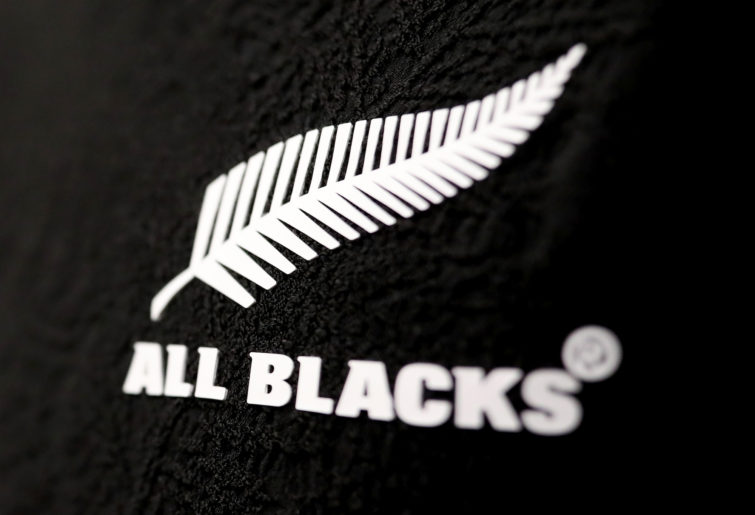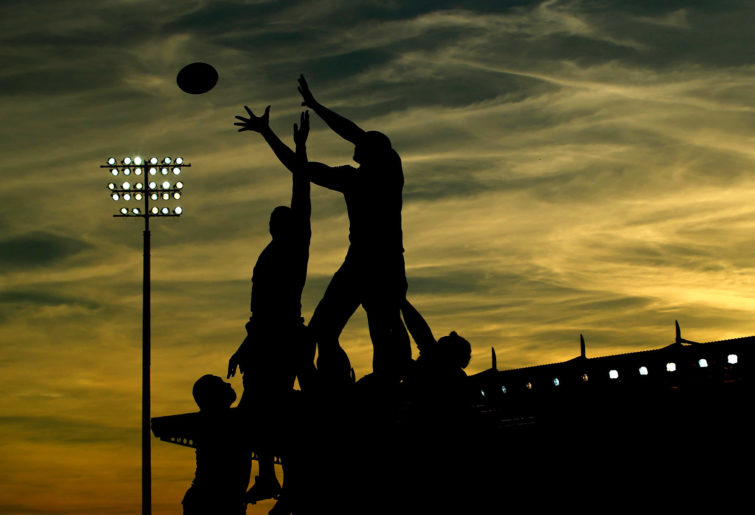To me, Sean Brian Thomas Fitzpatrick is the All Blacks’ greatest ever hooker and one of their most iconic players.
He is a true legend of the game and someone you would want to be on your side rather than the opposition. ‘Fitzy’ would have to be regarded as one of the most honoured and respected rugby figures worldwide. He was the prototype mobile, try-scoring hooker who would appear in the most unlikely situations for a hooker.
Fitzpatrick, in a similar vein to Ian Kirkpatrick, was a tight forward who used their mobility and skills to get hold of the ball and run with it. Along with Richie McCaw, Jonah Lomu and Colin Meads, he has become a folk hero to New Zealand rugby fans and supporters around the world.
Strong and well built, Fitzpatrick was an extremely durable rugby player and set an international record for 63 consecutive Test matches between 1986 and 1996. That is an astonishing achievement and to compare, Gareth Edwards made 53, Willie John McBride 52 and the brilliant Christian Cullen 51 consecutive appearances.
Some players are injury prone. Fitzpatrick was not one of those. This led to much discouragement to his trusty lieutenants, Warren Gatland, Graham Dowd, and Norm Hewitt. No wonder the All Blacks’ pack at that time is regarded as one of the greatest ever with a leader like Fitzpatrick who commanded respect, hard work and perseverance from his players.
Sean Fitzpatrick was born in Auckland in June 1963. He is the son of former All Black Brian Fitzpatrick. His father said to him: “Son, you don’t need to play rugby, you need to just play a team sport and make sure you enjoy it”. He attended Mt Carmel Primary School, then Sacred Heart High School.

(Photo by Fox Photos/Getty Images)
From a relatively chubby young man he developed into being a contender for the Auckland rep team in 1986, as a reserve to Iain Abercrombie. A perceived weakness with his lineout throwing was highlighted by Andy Haden’s blunt summary of Fitzpatrick’s skills. As with most things in his career he worked on it and eliminated the problem.
At 23 years of age his career advanced to being the reserve to Bruce Hemara in the famous ‘Baby Blacks’ team in 1986. After the A team had been suspended for two games because of the rebel Cavaliers tour to South Africa a relatively unknown team was announced to play France. Unfortunately for Hemara he broke his ribs in training and Fitzpatrick was called into the team. His career never looked back after the sterling victory over France 18-9.
Winning the Rugby World Cup in 1987 was one of the highlights of Fitzpatrick’s illustrious career. Once again, he was named as reserve, but when Andy Dalton sadly pulled out due to injury, Fitzpatrick took his place. David Kirk was named captain in Dalton’s absence. When Dalton recovered, he was still named as a reserve due to how well Fitzpatrick was playing. Although Dalton got to hold the trophy aloft it must have been quite devastating for him not to be on the field.
Coincidentally, Fitzpatrick received the captaincy nomination almost by mistake as well. Mike Brewer was a favourite of Laurie Mains and was in line to be captain but had to withdraw due to injury. Fitzpatrick captained the All Blacks in the matches against the World XV in 1992.
When Brewer was well, Sean continued as leader and created a good relationship with Laurie Mains, which reminds me of the famous line delivered by someone when Mains was losing: “We need a coach, not a ‘Laurie’ (lorry)!'”. Remarkably, Fitzpatrick held the position of captain up until his retirement.
Fitzpatrick successfully captained the All Blacks to a series win over the British and Irish Lions in 1993 but suffered losses to England in ’94 and the fabulous French team on their New Zealand tour. Then came the memorable Rugby World Cup in 1995, remembered for Jonah Lomu and ‘Suzie’, the mythical waitress who was reputed to have food poisoned the All Blacks prior to the final.

(Photo by Mark Leech/Offside/Getty Images)
Some retribution was given when the All Blacks famously won the Test series against the Springboks in South Africa in 1996. It was the first time a series had been won on South African home soil. I have an image of Zinzan Brooke holding his arms aloft at the triumph and the players lying exhausted on the ground. Fitzpatrick was cementing his title as one of the legends of the game at this time. He regards the series win as the highlight of his career.
He was an integral component of one of the great All Blacks teams, including players such as Jonah Lomu, Robin and Zinzan Brooke, Michael Jones, Ian Jones, Justin Marshall, Christian Cullen, Olo Brown, Craig Dowd and Josh Kronfeld.
Fitzpatrick was part of two of the best All Blacks front rows, with John Drake, Steve McDowall, and Richard Loe, then Olo Brown and Craig Dowd. Does it get any better than them?
As well as his consecutive appearances record, Fitzpatrick also contributed towards the international team record for most consecutive Tests without defeat, 23 Test matches between 1987 and 1990.
His Auckland provincial team won the National Provincial Championship eight times and the Blues won Super Rugby titles on two occasions. Auckland also won the Ranfurly Shield twice in 1995 and 1996.
The honour roll continues, with the All Blacks winning the Bledisloe Cup eight times between 1987 and 1997 and the Tri Nations twice. One World Cup title to his name and a series victory over the Lions in 1993. Out of his 92 Test matches played, there were 74 victories. That is a staggering record that many players can only dream about.
Fitzpatrick was one of those players who you wanted on your side for the All Blacks, but when playing for provincial Auckland he was one who you disliked because of his off the ball play and advice for opposition players. The good ones are the ones who provoke hatred in opposing fans. Ask Sir Richard Hadlee! Fitzpatrick was the enemy in South Africa but was also hugely respected.
However, in 1997 Fitzpatrick’s career was starting to flicker rather than burn brightly and he succumbed to a chronic knee injury and retired. His last match being against Wales in 1997 aged 34 years. He had played in 346 first-class matches, second to Colin Meads on 361. He played 128 matches for the All Blacks and 127 for Auckland.

(Photo by Hannah Peters/Getty Images)
I would say that Fitzpatrick is up there with Richie McCaw as one of New Zealand rugby’s most decorated players. He was awarded the Officer of the NZ Order of Merit for services to rugby in 1997. He also worked as an ambassador for NZ Rugby and is a member of the board of London club Harlequins.
Fitzpatrick was appointed chairman of the Laureus World Sports Academy in 2016. In 1999 he was named as hooker in the Rugby World magazine Team of the Century. In New Zealand polls he is often named as best hooker, usually competing with Dane Coles and Keven Mealamu. Both great players but when you are the prototype mobile hooker and leader the accolades should go with you.
Fitzpatrick has also managed the NZ Colts and the Blues sides and became a rugby commentator in Britain in 2004. He has authored a book, Winning Matters, on the traits of successful people and operates a sport to business leadership company.
Popping up at the right place at the right time seems to be one of Fitzpatrick’s attributes both on and off the field.
For stuff.co.nz in August 2021, Sean Fitzpatrick named his five favourite All Blacks. His criteria were to have players he had rubbed shoulders with. The five were Michael Jones, Grant Fox, John Kirwan, Zinzan Brooke and Dan Carter. Brooke would be his first named and other legends he enjoyed watching included Colin Meads and Bryan Williams.
There seems to be a similar concern for the demise of club rugby that Fitzpatrick shares with Ian Kirkpatrick and Steve McDowall. Fitzpatrick has called for a club window to save dying rugby union.

(Photo by Richard Heathcote – World Rugby via Getty Images)
He wants international rugby to stop cannibalising the domestic club game. Clubs now struggle for players and often call on lower grade players to fill gaps, therefore lowering the standard of club rugby. It would be fantastic to see quality representative players playing club rugby in an allotted time space in the season. Like say a Twenty20 window in cricket. If it is not done, the future looks a little grim for the appeal of our great game.
Fitzpatrick agrees with Silver Lake’s offer to acquire a 15 per cent stake in NZ Rugby.
“If it is done the right way, and they’ve got experience in private equity in sport. Grassroots is hugely struggling, and we need money to fix it, so the challenge for New Zealand Rugby is once they have the money, how are they going to use that money to fix the grassroots,” he stated.
Maybe the whole of rugby needs to be revamped with a review of current match rules and the performance of referees a good starting point. The dominance of referees on games is becoming a bore and will turn many away from what is potentially a much greater dynamic game.
Scheduling is another area of concern and is it feasible for a club window to be implemented?
Will Silver Lake investment contribute to or hinder the future growth of rugby union? Probably a more intensively researched subject for another day.
During his career Fitzpatrick received much advice from fellow players, including Andy Haden on skills such as lineout throwing, a player can either shrivel up and remain at that level or spend time improving those skills.
Probably the best advice he got was from Laurie Mains who forcefully told Fitzpatrick four pointers in a review: “You are too fat, secondly you’re too slow, thirdly, you’re bloody arrogant and finally, you have lost respect for the black jersey!”
This was after the All Blacks lost to the Wallabies in 1992. People have a choice, you either respect the advice and work on it or believe the person is wrong and stay the same as you are. Fitzpatrick chose the former and became a magnificent All Black as a result.
To put it simply, Sean Brian Thomas Fitzpatrick is an All Blacks legend and hero. And another favourite of mine.
































































































